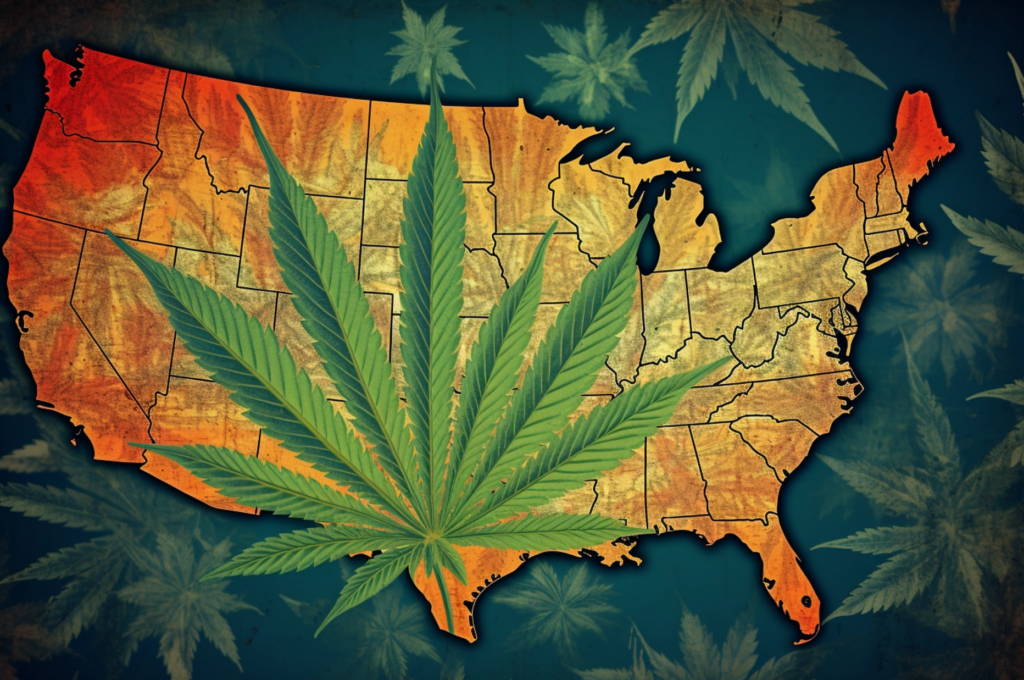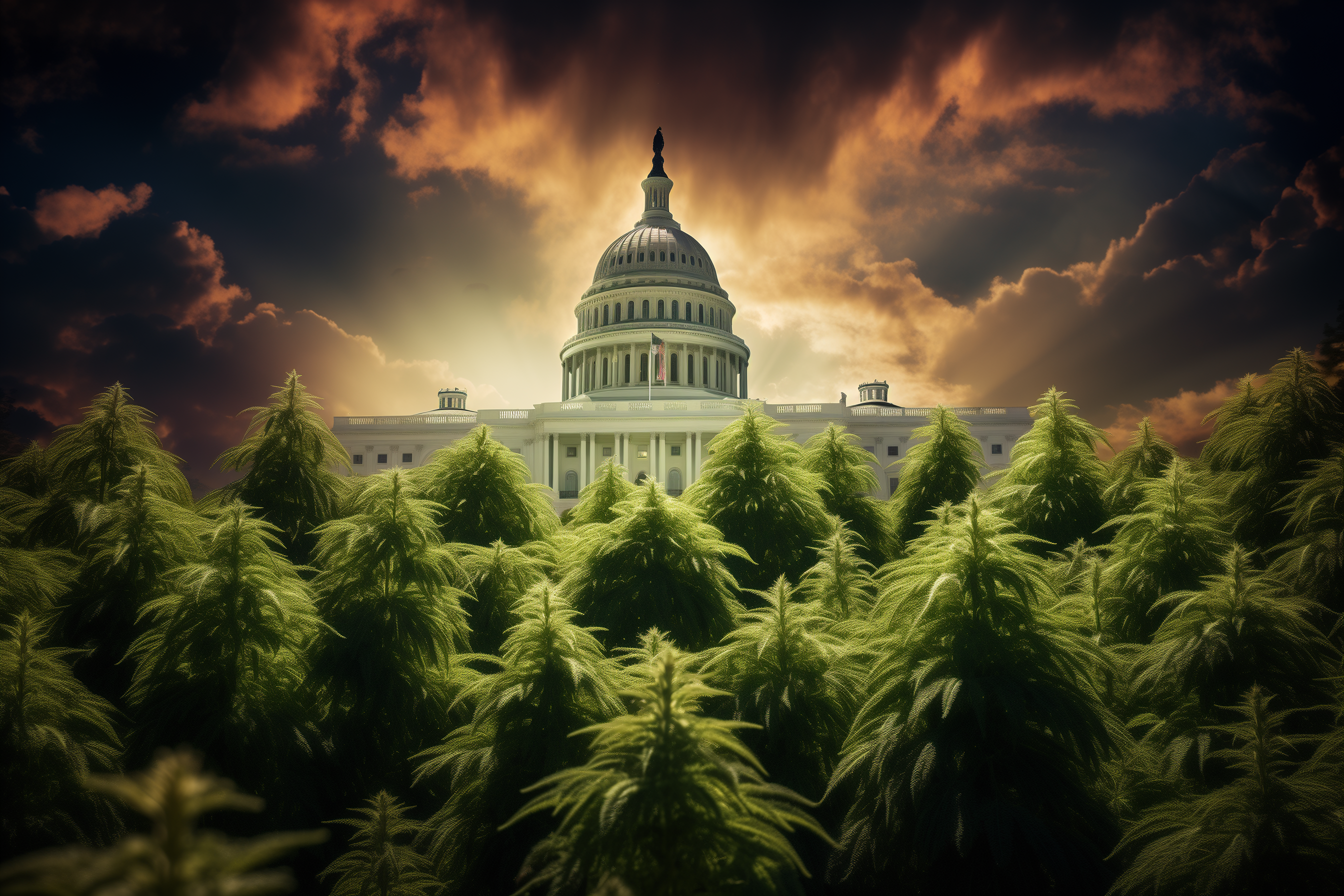Alabama Marijuana Laws
Introduction Welcome to our comprehensive guide on Alabama’s marijuana laws, thoughtfully provided by Learn Sativa University. In this guide, we offer the most recent information…
Welcome to Learn Sativa University, your trusted source for cannabis education. In the United States, marijuana laws vary drastically from state to state, creating a complex legal landscape for enthusiasts, medical patients, and industry professionals alike. This guide aims to provide a comprehensive understanding of marijuana laws by state, helping you navigate this ever-changing legal terrain.
Marijuana laws in the U.S. are characterized by their diversity. While some states have embraced both medical and recreational marijuana, others have strict prohibitions or have only decriminalized its use. It’s important to note that despite state legalizations, marijuana remains illegal under federal law. A visual map of the U.S. showcasing the legal status of marijuana in each state offers a clear picture of this varied landscape.

When diving into individual state laws, the differences become more apparent:
Each state has its nuances, and it’s essential to be aware of pending legislation or recent changes that could impact these laws.
Medical marijuana laws are as varied as the states themselves. While some states have a broad list of qualifying conditions, others are more restrictive. Generally, obtaining a medical marijuana card involves a physician’s recommendation and registration with the state’s medical marijuana program. Conditions like chronic pain, epilepsy, and multiple sclerosis are commonly recognized across various states.
For cannabis entrepreneurs, navigating the different state laws is crucial. Compliance with state-specific regulations, including licensing, product testing, and marketing restrictions, is mandatory. At Learn Sativa University, we offer courses that focus on these aspects, equipping you with the knowledge to start and run a compliant cannabis business in any state.
Our mission at Learn Sativa University is to educate on the intricacies of cannabis laws. Our curriculum covers a wide range of topics, from state-specific legislation to the business of cannabis. Alumni stories highlight the success of our students who have applied this knowledge in their cannabis ventures.

1. How do marijuana laws vary by state in the USA?
2. Which states have legalized recreational marijuana?
3. Are there states where only medical marijuana is legal?
4. What are the common qualifying conditions for medical marijuana?
5. Is CBD legal in all states?
6. Can you travel between states with marijuana?
7. What are the legal age requirements for marijuana use?
8. How do states regulate marijuana businesses?
9. What should I know about marijuana use and employment laws?
10. Where can I find specific information about marijuana laws in a particular state?
Browse the table below and click on any state for detailed information about its marijuana laws.
| State | Medicinal | Decriminalized |
|---|---|---|
| Alabama | Yes | No |
| Alaska | Yes | Yes |
| Arizona | Yes | Yes |
| Arkansas | Yes | No |
| California | Yes | Yes |
| Colorado | Yes | Yes |
| Connecticut | Yes | Yes |
| Delaware | Yes | Yes |
| Florida | Yes | No |
| Georgia | CBD Oil Only | No |
| Hawaii | Yes | Yes |
| Idaho | No | No |
| Illinois | Yes | Yes |
| Indiana | CBD Oil Only | No |
| Iowa | CBD Oil Only | No |
| Kansas | No | No |
| Kentucky | CBD Oil Only | No |
| Louisiana | Yes | Yes |
| Maine | Yes | Yes |
| Maryland | Yes | Yes |
| Massachusetts | Yes | Yes |
| Michigan | Yes | Yes |
| Minnesota | Yes | Yes |
| Mississippi | Yes | Yes |
| Missouri | Yes | Yes |
| Montana | Yes | Yes |
| Nebraska | No | Yes |
| Nevada | Yes | Yes |
| New Hampshire | Yes | Yes |
| New Jersey | Yes | Yes |
| New Mexico | Yes | Yes |
| New York | Yes | Yes |
| North Carolina | No | Yes |
| North Dakota | Yes | Yes |
| Ohio | Yes | Yes |
| Oklahoma | Yes | No |
| Oregon | Yes | Yes |
| Pennsylvania | Yes | No |
| Rhode Island | Yes | Yes |
| South Carolina | No | No |
| South Dakota | Yes | No |
| Tennessee | CBD Oil Only | No |
| Texas | CBD Oil Only | No |
| Utah | Yes | No |
| Vermont | Yes | Yes |
| Virginia | Yes | Yes |
| Washington | Yes | Yes |
| West Virginia | Yes | No |
| Wisconsin | CBD Oil Only | No |
| Wyoming | No | No |
Conclusion
Understanding marijuana laws by state is critical in the ever-evolving cannabis industry. Staying informed and educated is key, and Learn Sativa University is here to guide you through this journey. Enroll in our courses to deepen your understanding of cannabis laws and confidently navigate this complex legal landscape.
Introduction Welcome to our comprehensive guide on Alabama’s marijuana laws, thoughtfully provided by Learn Sativa University. In this guide, we offer the most recent information…
Introduction Welcome to our in-depth guide on Massachusetts’ marijuana laws, brought to you by Learn Sativa University. In this guide, we provide up-to-date information on…
Introduction Welcome to our comprehensive guide on Oregon’s marijuana laws, meticulously crafted by Learn Sativa University. In this guide, we offer the most current insights…
Introduction Welcome to our comprehensive guide on Texas marijuana laws, presented by Learn Sativa University. In this guide, we provide the most current information on…
Introduction Welcome to our detailed guide on California’s marijuana laws, presented by Learn Sativa University. Here, we not only provide you with the latest information…
Introduction Welcome to our in-depth guide on South Dakota’s marijuana laws, presented with expertise by Learn Sativa University. Here, we provide the most current information…
Introduction Welcome to our comprehensive guide on Oklahoma’s marijuana laws, expertly crafted by Learn Sativa University. In this guide, we provide the latest information on…
Introduction Welcome to our comprehensive guide on North Dakota’s marijuana laws, provided by Learn Sativa University. In this guide, we deliver the latest information on…
Please confirm you want to block this member.
You will no longer be able to:
Please note: This action will also remove this member from your connections and send a report to the site admin. Please allow a few minutes for this process to complete.